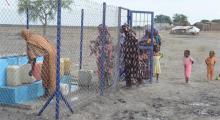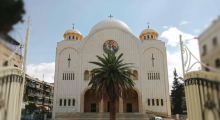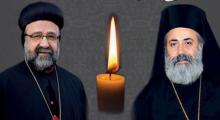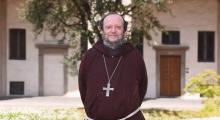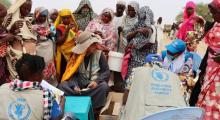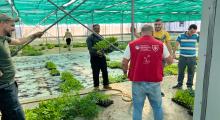Issued by the Catholic Center for Studies and Media - Jordan. Editor-in-chief Fr. Rif'at Bader - موقع أبونا abouna.org
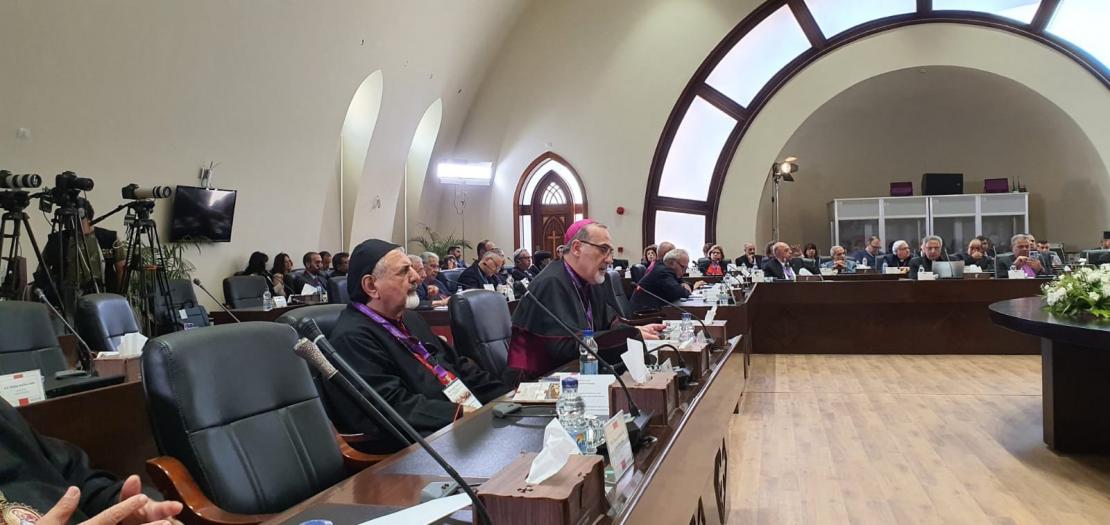
Following is the text of the address delivered by His Beatitude Patriarch Pierbattista Pizzaballa, Latin Patriarch of Jerusalem at the Middle East Council of Churches 12th General Assembly, convening in Cairo:
Your Holiness, your Eminences, your Beatitudes and Excellencies, heads of the Ecclesial Families in the Middle East Council of Churches,
The Lord give you peace!
I bring you greetings from our communities of the Church of Jerusalem, our heart and pearl, the blessed and holy city, and also the wounded one.
This is the first time I have participated, even if partially, in the General Assembly of the Middle East Council of Churches. I highly value all the efforts of this council to promote a familial ecumenical spirit, as well as to improve the coordination and cooperation among our various sister Churches.
In the interval between the 2016 General Assembly, which was held in Amman, Jordan, and the 2022 General Assembly, which is being held in Cairo, Egypt, at the invitation of His Holiness Pope Tawadros (whom we all appreciate for his dedication to ecumenical dialogue), many changes have happened, and many events have erupted. Yet, all our respective Churches, notwithstanding the many challenges, have continued to move forward with steadfastness, to fulfill their spiritual, educational, and humanitarian mission.
Like all the churches in the world, we also had to deal with the pandemic, which heavily affected the life and the economy of our communities. We have been able to reach most of our people, both spiritually and with humanitarian support, especially around Bethlehem and in Jordan, providing aid to the poor and the needy. We also refrained from sending home any employee of the Latin Patriarchate institutions, maintaining their full salaries, even if that was at a heavy cost to us. In this and in many other ways we tried to remain close to our people, in the time where we were asked to keep physical distance. I suppose you had the same challenge.
As you might have seen in the news, the political situation in the Holy Land has been very tense for several months, and after the killing of the journalist Shireen Abu Aqleh, the situation became even worse from a political and security point of view. On one hand, the events around the killing of the Christian Journalist created a rare moment of unity among all Palestinian people, and a moment of euphoria in the powerful demonstration during the disputed funeral. After many years, finally the Palestinian issue was back in the media. On the other hand, the political tension is as high as ever, with severe consequences to our relations with the local authorities, especially the Israeli ones. Last Monday, the Christian Churches of Jerusalem condemned the aggression of the police against Shireen Abu Aqleh’s pallbearers in the Catholic Hospital of St. Joseph.
In this case, as in many other cases, we have had to deal with different narratives about the events, often opposed to one another. The question of Jerusalem and her future is now at stake, and again in this case there are different narratives about the Holy City and her political and religious future. We as Christian communities cannot remain silent. The Holy City, in fact, has a Christian character that has to be preserved and remain visible and respected. The Christian voice about Jerusalem needs to be heard and listened to.
We must, however, not limit our Churches to working only in the political context, even if this is unavoidable in Jerusalem. We belong to Jesus, to the risen one. The resurrection is the source of our hope. Even if everyone is talking about division and exclusion, we must all keep working towards encounter and reconciliation, not allowing hatred to enter our hearts and not allowing our words and our gestures to be guided by rancor. This is a risk we want to avoid. We must keep asking ourselves how to live as Christians in this difficult conflict, which is absorbing so much of our energy.
The empty tomb, the sign of the resurrection, should remind all of us, who are sometimes scared like the disciples in the Cenacle, not to be afraid, and to go, announcing the Good News of the Gospel, and that yes, we also have met the Lord and in him we find our strength.
I convey my greetings to the secretary general, to all the departments, and to all the committees that will also emerge from this assembly, which convenes for the first time after the elapse of the Corona pandemic. I convey greetings and heartfelt thanks to his Holiness, and to all who prepared with him such a beautiful and important gathering. I hope and pray that the new MECC council could help all of us, our different and troubled Churches of the Middle East, to remain strong and serene witnesses of the resurrection of Christ in our respective countries.


